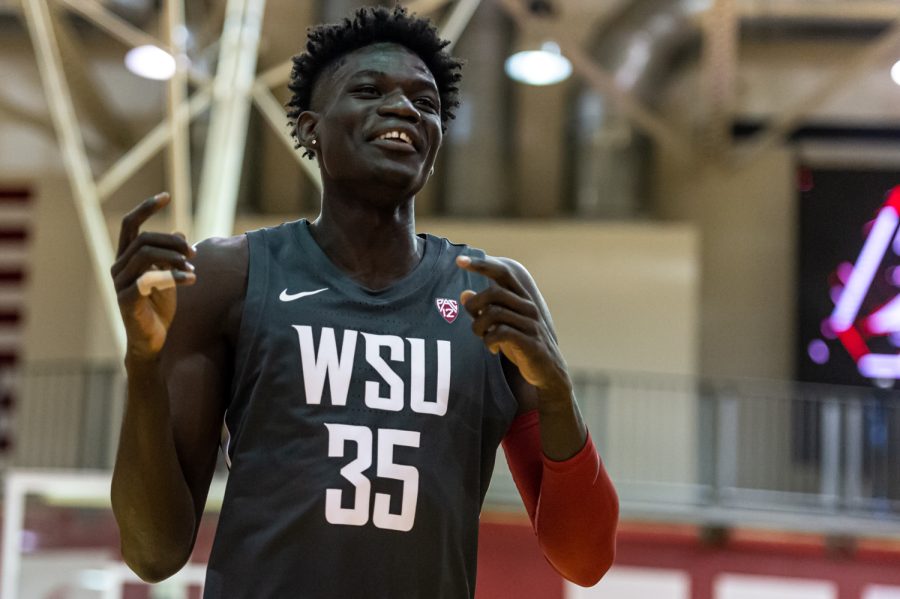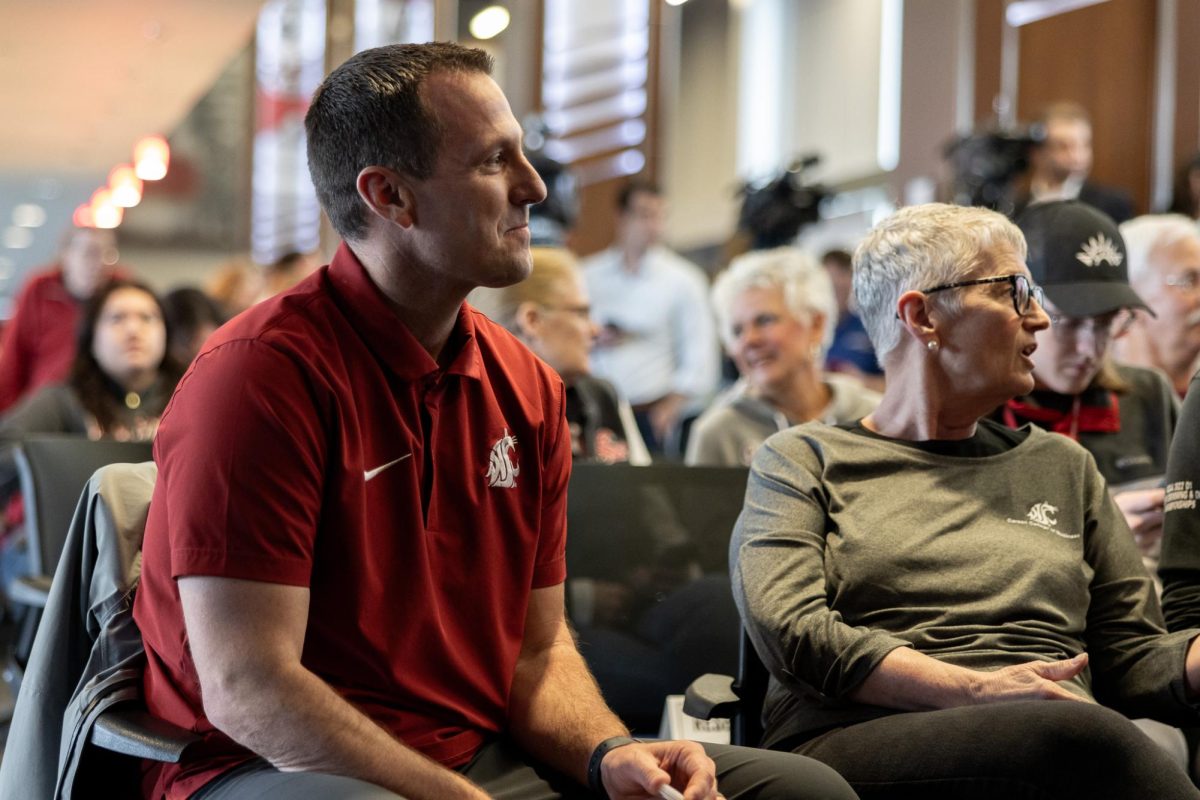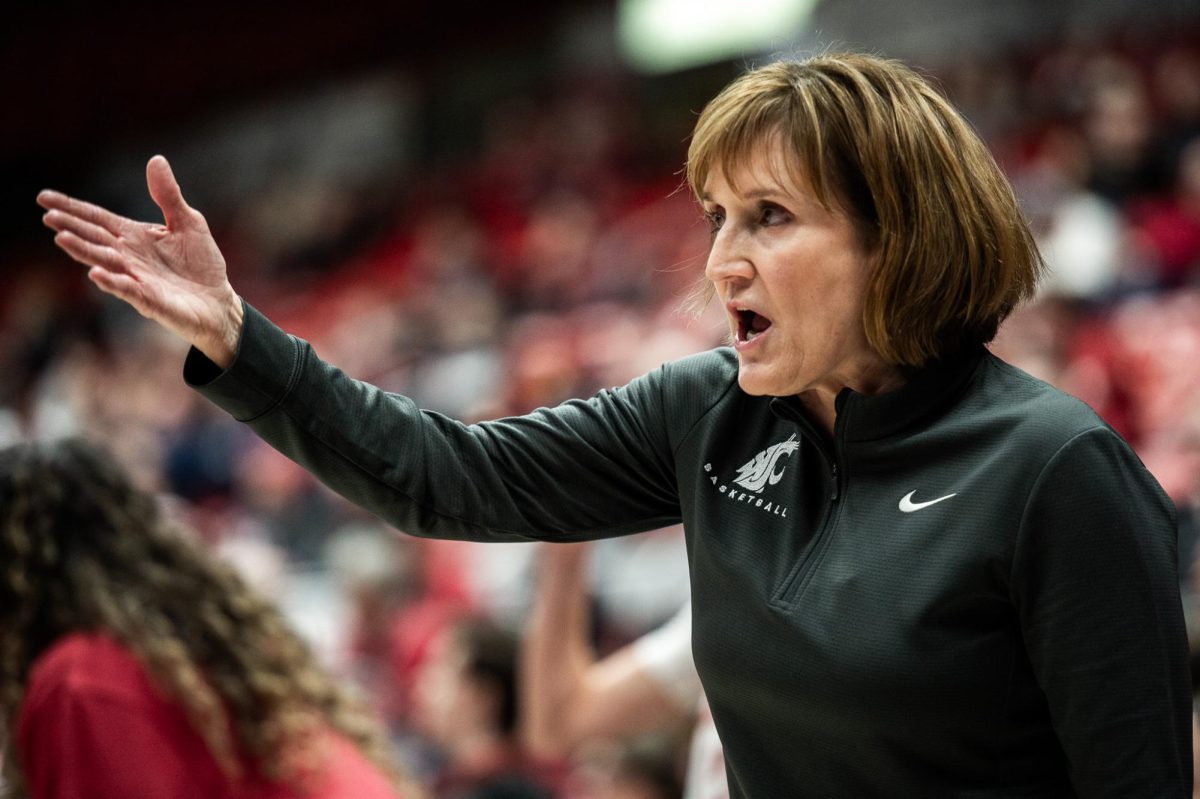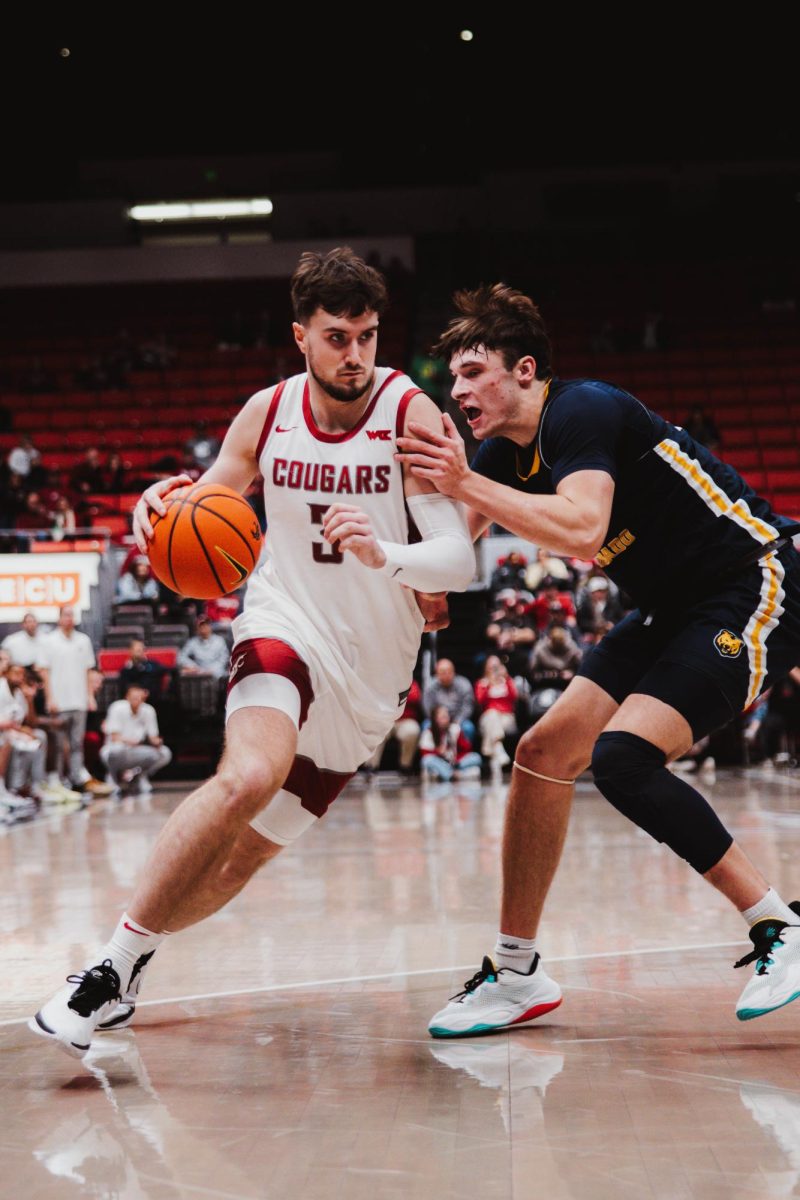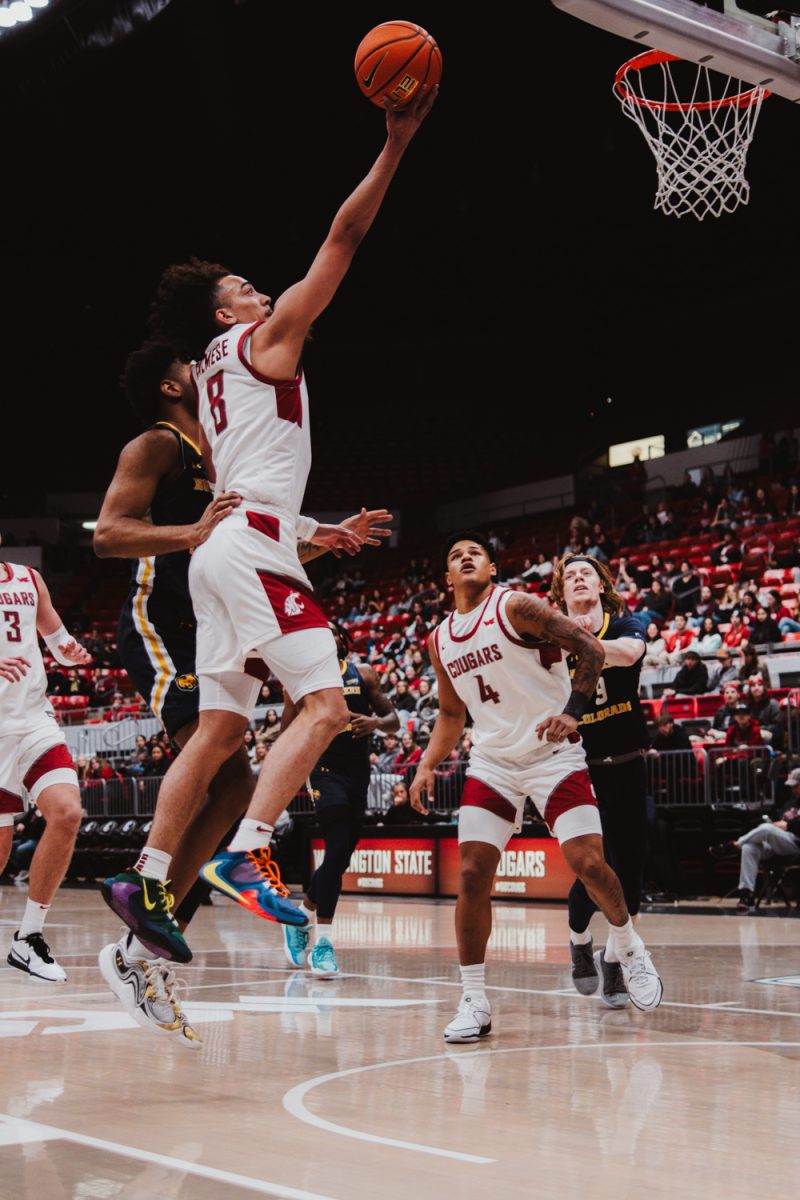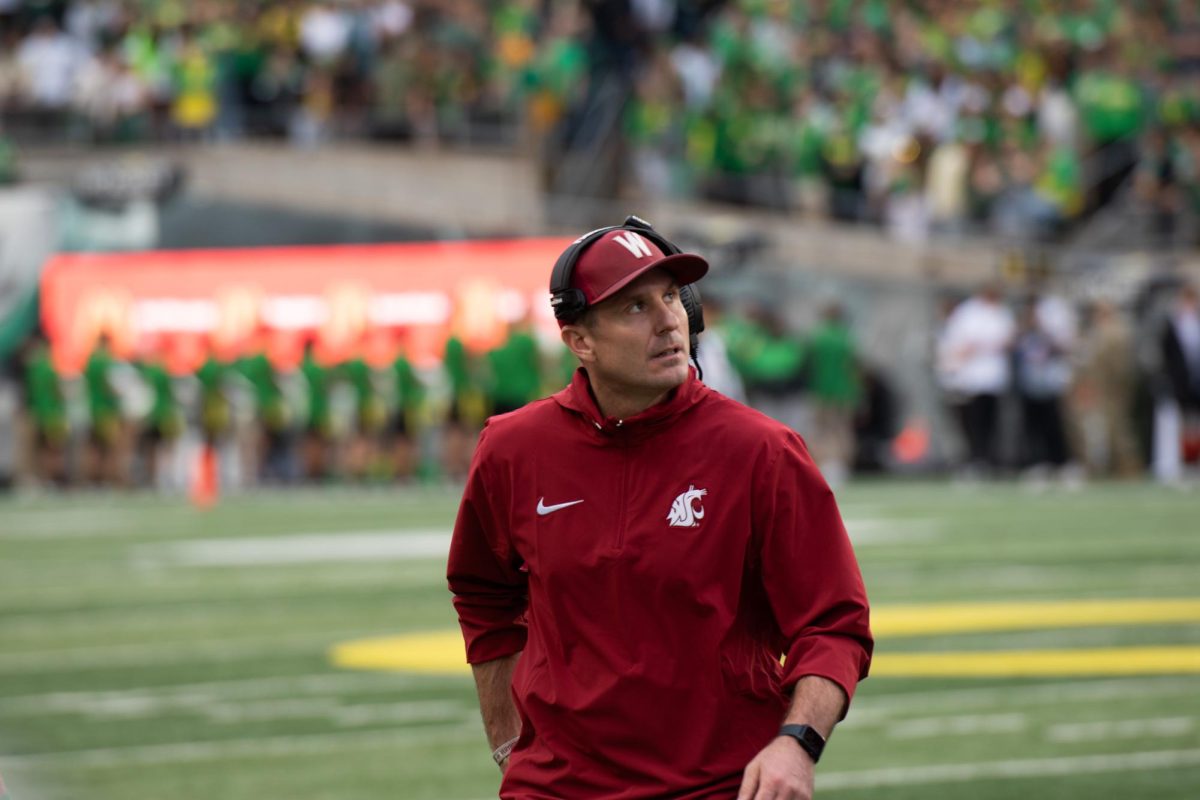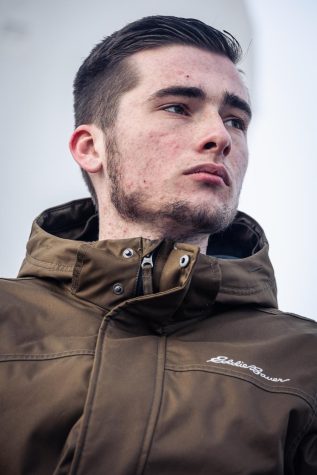WSU athletic programs have capitalized on undiscovered international talent by committing to recruiting where many bigger market schools are not. There is no better example of this than what the men’s basketball program has done in recent years.
In the past two recruiting cycles and the upcoming 2023 class, WSU men’s basketball has reeled in three of the program’s top five highest recruits in school history. The biggest thing they all have in common: they all hail from Western Africa.
The Cougs also landed Efe Abogidi in 2019, a standout player in the NBA Global Academy in Australia, originally from Nigeria. The three most recent recruits, Mouhamed Gueye, Adrame Diongue and Rueben Chinyelu however, are all four-star recruits who had extensive national interest from top schools in the recruitment process.
The key to WSU landing these high-level prospects is assistant coach John Andrzejek, a former assistant coach at Dartmouth University. Chinyelu’s commitment to WSU would not be possible without Andrzejek’s “relentless hard work,” head coach Kyle Smith said in a Seattle Times article.
The pipeline began when Andrzejek was at Columbia University from 2012–16 as an assistant and then director of basketball operations, where they had a guard named Maodo Lô.
Lô is Senegalese and German and had lots of success. He now plays in the Lega Basket Serie A, Italy’s top basketball league.
That connection transferred to WSU with Abogidi, two players of African descent, in a process that was basically just one after another, Andrzejek said.
“[Abogidi’s] success as a freshman leads to Mouhamed Gueye watching him and going ‘Oh, I could jump into that role’ and at the same time, we had TJ Bamba here. Mo (Gueye) was following Efe, but then Bamba blossoms this year and then Adrame (Diongue) is watching Efe succeed here, he’s watching Mo succeed here and he goes ‘Ok, I see the blueprint, this could be me next,’” Andrzejek said. “All of that turns into Rueben.”
Andrzejek said the big advantage WSU has in overseas recruitment in Africa is the lack of national scouting done there. When one school consistently puts in the effort to scout internationally, players take note.
“When I was down in Madagascar at the under-16 African Championships, I was the only college coach there,” Andrzejek said. “The players especially notice that. I could tell when I’m watching Mali play Madagascar, I can see the kids looking over and noticing I’m there and I’m wearing our Coug stuff loud and proud. Biggest fonts I can find, biggest logo, trying to wave the flag, ‘hey we’re here and we watch it.”
WSU is not just making connections with players of African descent, but also on campus, Andrzejek said. They are trying to build a string of success stories with African players and make the community friendly to the players as well.
“There’s a guy named Dr. Sola Adesope who lives and works at the school, he’s very involved in the church. So when Rueben did his official visit, Dr. Sola had breakfast with him, had a big old Nigerian flag, talked about different meals and all sorts of connections like that,” Andrzejek said.
Religion is also very important, Andrzejek said. And that has been a big part of the recruitment pitch to the players.
“Not all, but some of the players are Muslim and it definitely resonates with them to have other players on the team with a similar belief system,” Andrzejek said. “And then we also push the basketball piece, we push the player development, we push the style of play, playing to their strengths, our development philosophy is, we want you to get better at your weaknesses, but we also want to double down on your strengths.”
All players are unique, but the players coming over from Africa share similar excellent athletic abilities, said Stephen Frankoski, WSU shooting coach and former Cleveland Cavaliers assistant coach.
“They’ve come over and displayed athleticism and the ability to defend pick and rolls, they play with active hands-on defense, shot-blocking and getting deflections and steals,” Frankoski said. “Offensively each was different, but Mo and AD (Adrame Diongue) have a really good feel for passing, Mohamoud I know played soccer a bunch growing up and still plays it here.”
All three of the most recent recruits have handled the new surroundings well and seem very down to earth and “super low key,” Frankoski said.
“Those guys (Gueye, Diongue and Chinyelu) have been great, they’ve done a tremendous job just sticking to what they want to do when they got here and staying disciplined,” Frankoski said. “That’s part of college, teaching you how to be more mature, understand responsibility and that’s part of our job too as coaches.”
The biggest adjustment to playing in Pullman is the equipment and facilities. In Africa, it is mostly outdoor courts and no equipment, whereas Diongue said at WSU he is always inside the gym.
“The cold reality of basketball is in order to become a terrific dribbler, you just have to dribble a lot, you have to have access to the right ball, wooden surface and guys to play against for years and years, day in and day out. From what I understand, the gym access and quality of gyms are on the rise in West Africa,” Andrzejek said.
Diongue said it took some time to understand the team’s culture, but he learned a lot and became far more comfortable during his time here. Even though Diongue is now in the transfer portal, his journey still shows the significance of the pipeline.
For all that the pipeline has done for WSU men’s basketball recruiting, there is still a lot of untapped potential, Andrzejek said. There are still many regions of Africa that WSU’s scouting has not reached, including Eastern Africa.
While competition in recruiting is bound to stiffen up with the success the pipeline has brought WSU, like seeing Gueye be selected in the 2023 NBA Draft, it has reinvigorated the program. And as awareness of the immense, undiscovered talent in Africa slowly grows, so too does the path WSU continues to pave.

